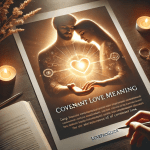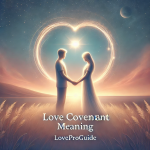To understand why an Addict cannot love you, one must delve into the tangled web of addiction and emotional health. At the core of its very definition,
addiction is a sustained power that places preferred substances above everything else besides itself in relationships. Prioritization this fundamental obstructs the capacity of genuine loving relationships, giving way to a sense of entitlement. what does 23 mean in love
The Nature of Addiction
Understanding AddictionSubstance use disorders are a chronic and relapsing disease, defined by addiction-related behaviors like communication of decisions for drug therapy, prolonged exposure to adversity against adverse consequences (losses),
with long-lasting brain changes. These changes in brain undertaking influence areas included with judgement, decision-making become familiar form sponge-like memory——>
behavior control. The addict’s entire life centers around the substance, to a point where nothing matters anymore.
Basically, the reward system of your brain is hijacked in this altered state. The substance then causes a much more intense euphoria that strengthens the desire of the addict to consume it.
The natural rewards fade into obscurity over time, things like love and personal relationships become less important. This shift means that however much an addict wants to emotionally connect,
the substance always takes front and center in their brain’s wiring, leaving them near incapable of genuine emotional connection.
The Emotional Cycle of a Love Addict

Equally as complex – how a love addict moves through the emotional cycle Love addiction echoes drug and alcohol abuse in so many ways. The best way to do this is going to be with new romantic affairs which love addicts will crave in order for that euphoria and escape.
It can lead to people getting too attached, or those who are obsessive about the relationship they have with another person because that other person is only thing in their lives giving them extreme highs.
They pursue these highs just as substance addicts, and love addicts eventually lead to cycles of intense pleasure followed by deep despair. Permanent stability is hard to come by, because that kind of love depends on emotionality —
not the transience and impermanence encouraged with a relativity mindset. As a result, the spouses of addicts are frequently ridden with Double Dutch emotions.
Impact on Relationships
The cost to human bondages, infidelities is great and complicated by substance abuse of one partner To maintain an addiction requires time, effort and emotional energy – all of which are siphoned away from relations. The addict becomes consumed with their substance of choice and the partner is left behind, or present but not really there.
Initially, partners may try to fix or rescue the addict and think that love will be enough to make him want different. But that only leads to emotional burnout and feelings of failure.
The addiction cycle of hope and let-down wears the non-addicted partner’s self-esteem away, leaving feelings breeding like unworthiness and experience drained.
In addition, addiction tends to be accompanied by lying, stealing, and manipulating which makes matters even worse for all parties. Trust, this is what gets eroded away in addiction and leaves the non-addicted partner feeling betrayed and alone.
Emotional Availability and Addiction

Emotional availability and addiction are generally mutually exclusive. Emotional availability is all about being present, empathizing with your spouse and putting them first; characteristics that addiction just inherently erodes away. Emotionally Unavailable Alcoholic
An addict is primarily dealing with either getting or using, and the emotional side of your relationship has probably taken a backseat in their mind.
The coping mechanism of emotional detachment that is also a product of addiction. Addicts shut down emotionally in order to deal with guilt and shame, surrounding their addiction. They detach in part as a defense mechanism against the possibility of further pain,
and also because drugs change brain chemistry – sometimes giving precedence to whatever makes you feel high over emotions.
Emotional Detachment
One of the hallmarks and also an end result of addiction is emotional detachment. It becomes a shield for the addict to continue its behavior and never have to really face their own emotional outcome.
This detachment can be equally as hard on the non-addicted partner, as it may feel like a rejection of them specifically.
However, by removing those emotions we create a gaping hole in the relationship making connection and communication almost impossible.
Absence of emotional connection reduces the relationship to a business contract without soul, and we cohabit more out of need or convenience than for love.
How to Avoid Love Feeling

Learning how to protect oneself from Love addiction in the context of a relationship with an addict requires self-preservation and line drawing. It’s important to recognize that an addict, based on their very diseased condition could not have provided the emotional stability and reciprocity for a healthy relationship.
I’m just saying guarding your heart doesn’t mean being indifferent and unkind. It could mean removing oneself from the relationship, leaning on friends or family (or professionals) for support and working to better yourself in your life.
Creating clear boundaries and protecting them is critical so you’ll not be sucked into the addicted to chaos emotional landscaping of the addict.
Conclusion
The reason why an addict cannot love you is best explained by the fundamental changes addiction causes in the brain and behavior. It becomes impossible to maintain the emotional availability one needs for a loving relationship because it is so overshadowed by this constant chase after that substance.
The reasons why they become an addict, the emotional life cycle of a love addict and how it manifests in relationships gives clarity to better decisions by whomever is staying close while dating or sharing their life with one.
Emotional detachment and learning to avoid love feeling in these contexts will save a person some emotional sanity.











